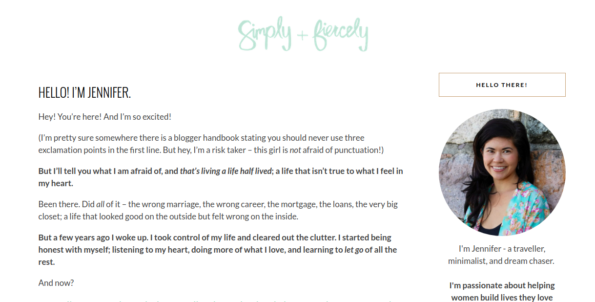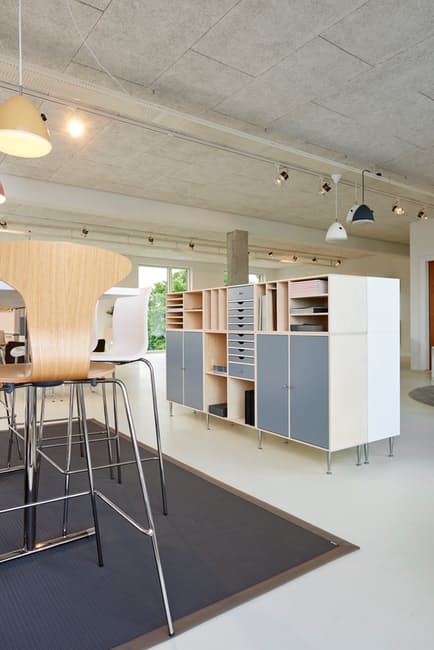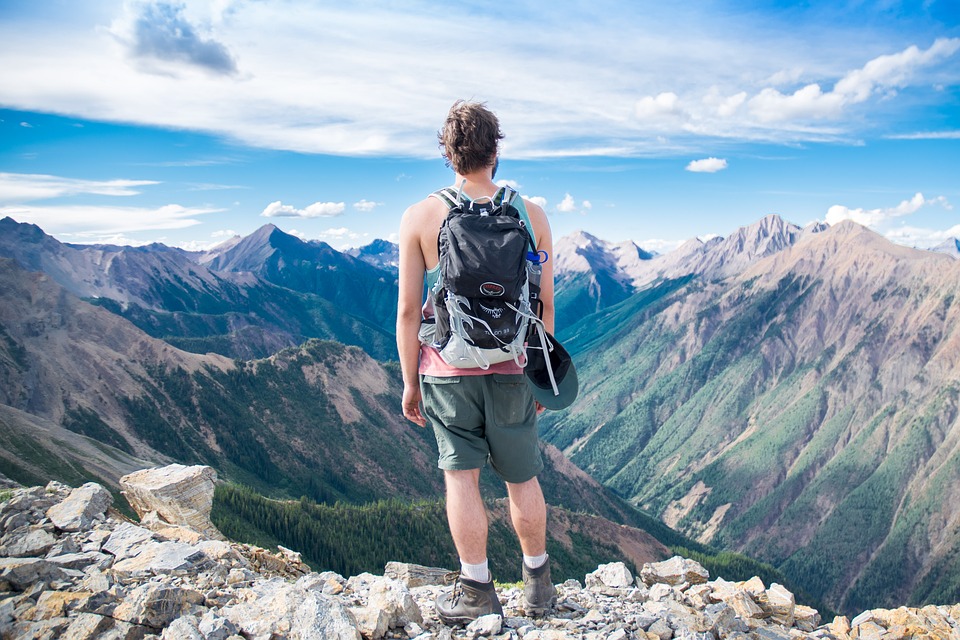Two guys with six-figure jobs, luxury cars and oversized houses with rooms upon rooms in “need” of things. Sounds like the American dream, huh? How about this? They worked 70-80 hours each week just to buy more and fill the void. This is the story of Joshua Fields Millburn and Ryan Nicodemus, theminimalists. Fed up with simply existing, each tried their own journey into minimalism. This experiment gave them the energy, freedom, serenity and satisfactory feeling they had been yearning for, so they continued with it even further. They quit their jobs at age 30 and continued with the minimalist lifestyle by selling their houses, cars and other miscellaneous things. They began their journey of adventure and experience. Do you think you could do this? Would you ever do this?
Well, by the end of this post you’ll see that YOU CAN!
First off, let’s get the right idea of the term “minimalist” which I cannot define better than Jennifer, a minimalist and blogger herself, who states that a minimalist is “someone who decides to be intentional about what things (possessions, people, ideas) they include in their life. Practically, this means minimalists generally own few things and strive to live smaller, simpler lives (less things = more joy!).” (Check out her blog below!)

(Screenshot taken by Katarina Kraljic)
All of these “necessities” that we think we need are actually ineffective to our lifestyles. Underneath it all we’re seeking security, happiness and satisfaction..to be at peace with ourselves. Well, it’s safe to say that in our consumer based world, we’re always going to want more, better, easier and simpler. So how do we fulfill this need? I have a simple, one-worded answer for you. Confidence. What? We’ll come back to this idea later. It’s actually quite easy to recognize and connect the various ways to have less and live more with confidence.
Research from the Princeton University Neuroscience Institute found that “Multiple stimuli present in the visual field at the same time compete for neural representation by mutually suppressing their evoked activity throughout visual cortex, providing a neural correlate for the limited processing capacity of the visual system.” So what the heck does that mean? To clearly state their findings, when your surroundings are chaotic and/or you see movement, your ability to focus decreases. Have you ever noticed this? Also, have you ever wondered why people tend to face their desks toward a wall? It may be a subconscious resolution for productivity.
Being productive is one way we gain confidence in life. Just look at the amount of physical, mental and emotional growth you’ve made throughout YOUR life. Doesn’t it make you proud to say you passed high school, made a good sports’ team, got your license, or are done growing? ..So maybe confidence really is key! Another way to increase productivity and essentially confidence, up next! …

Image by Simon Hansen on Pexels.com
Now let’s look at minimalism in a non-conventional way. With a more “Well, I can do that” attitude. Oh organizing, gotta love it (says facetiously). Well at least I do. Organizing gives us a sense of control over our lives as well as the mobility we need every day. By knowing where everything is without a second doubt, we can use our brain power more efficiently throughout the day.
But organizing doesn’t have to stop at home! “When you’re organized at work, you’re more productive and efficient, which means you’re able to finish at a reasonable time and go home. This leaves you with the time you need to exercise, prepare a healthy meal, relax, and get more sleep.” Another worthy mention is that organizing doesn’t have to do with just stuff. You can organize your daily activities, goals, sleep, diet and exercise schedules too! By working on these other aspects you’ll have minimal stress and less procrastination!
So maybe this minimalism idea still scares you? Well, we can take a baby step, just a peek into the lifestyle of owning less. Joshua Becker, author of The More of Less , helps people really think about the belongings they collect. I find this line especially powerful, “the beauty of minimalism isn’t in what it takes away. It’s in what it gives.” The point I’m trying to get at is yes, minimalists live with less stuff, but aren’t they really living more?
See, the difference in necessity is transferred from physical security to mental security meaning that minimalists recognize what they’ve been missing mentally rather than assuming they’re in need of a physical possession. It’s just a different way of thinking, “a whole new world” so to speak!
They have more versatility, energy, control, adaptability, adventure, enthusiasm, freedom, creativity, optimism, productivity, (etc.). That list could go on and on, but I think you get the point. Just visualize it…traveling the world, filling your soul with wisdom, gaining experience and knowledge. Then someday lying on a blanket (in the grass of course) and reminiscing on your adventures. Questioning the world under a starry night, maybe even with a new friend that you wouldn’t have even met if you hadn’t gone outside your comfort zone! Again, it takes confidence to live life to the max. As Kurt Vonnegut says, “Enjoy the little things in life because one day you’ll look back and realize they were the big things.”
Another good, related quote…
“The best portion of your life will be the small, nameless moments you spend smiling with someone who matters to you.” – Ritu Ghatourey
This leads us back to confidence. Something so small, just one word, yet so important. Minimalists have confidence in their decisions, behavior, knowledge and most importantly, money! “Self-confidence is considered one of the most influential motivators and regulators of behavior in people’s everyday lives.” Have you ever been so happy, maybe even “high on life,” that nothing else seemed to matter? When we’re happy we’re also content, meaning we are satisfied with what we have. We don’t need to look for material things to make us happy. All we really need is confidence. However, when children reach adolescence, their self-esteem drops dramatically which can easily result in an excessive amount of material things. This behavior is much too common and furthermore an unsuccessful method. So why do people “shop their feelings away?” This may seem a bit off topic but stay tuned to see how it connects to minimalism.
Society has people believing that true beauty equals first impressions and appearance. Agreed? This causes young people to stress about their looks and hence, spend money to enhance their appearance. Not only does this take a toll on their wallets, but their self-confidence also takes a terrible tumble. Clutter can ‘mess’ with our dignity by making us focus on what’s supposedly “wrong with us” and why we don’t have life organized or figured out. This generates feelings of fear, embarrassment, guilt and uncertainty which interferes with our self-confidence.
MINIMALISTS’ STORIES
Haley (27) and her husband bought a house when she was only 21. Two years later they decided to live out the “American Dream” further and buy a house more than three times the one they already owned! With time, Haley found her new investment to be rather empty and kept adding things (to fill the void). She later began to realize how hard it was to keep clean so she decided to declutter her whole house, which in her own words felt “freeing” and made her “more aware” of the belongings she and her husband brought into their home.
Millburn discovered minimalism in 2008, in the same month that his mother died and his marriage of six years ended. He began to see life’s focus and realized what things were important. He decided to purge. In eight months, he disposed of 80-90% of his former possessions.
Nicodemus also saw a difference but in a more creative way. He boxed up all of his belongings in his apartment and only took things out when he needed them. After 21 days, he still had 80% of his possessions in boxes and what he didn’t need, he sold or gave away.
Now I’m not saying you have to go that far, but even just decluttering a dresser drawer, a cuby of some sort or under your bathroom sink, you can feel the same invigorating feelings of relief, acceptance and freedom as Haley, Joshua and Ryan.
In the upcoming video, Alyse enlightens us on her journey to minimalism.
On a completely different and maybe more interesting note, there are people who are literally driving themselves into minimalism through the tiny house movement. While “Tiny houses” aren’t exactly what every minimalist talks about, the people that do talk about them or have a fascination with them are minimalists (or usually plan to be)! “Tiny houses” are defined as homes under 1,000 square feet. They can be driven around like a camper or stationary with optional built-ons. They were popularized by Jay Shafer who managed to design a 96 square foot house AND live in it! He eventually founded the Tumbleweed Tiny House Company and then the Four Lights Tiny House Company in 2012. Historically “tiny houses” can be derived from the idea of “Katrina Cottages” which came about after Hurricane Katrina in 2005. These shelters started at 308 square feet and provided a pleasant solution to the victims of the disaster.
Tiny houses are mainly for people who want mobility and accessibility but don’t want to dispose of the “homey feeling,” so they decide to have a home on the road (optional)! This links back to the idea of freedom and creativity. Others have come to the conclusion or discovered that they don’t need all the space and possessions they have. The tiny house movement has brought people together. For example, the Mt. Hood Tiny House Village located on the outskirts of Portland, Oregon. Now this is rather extreme but if you have taken the time to watch some of the linked videos you will see how happy these tiny houses make people. I have yet to watch a “Tiny House Tour” on YouTube where someone (being the builder or owner) has regretted their decision to make or live in a “tiny house.” However, this may not be ideal for everyone.
To sum things up: Don’t lose your confidence in your clutter, less really can be more. Organization and priorities are two keys to success when minimizing. Take the time to enjoy the little things in life. Minimalism is not forcing yourself to dispose of your belongings: it’s learning to have the confidence in knowing what is essential to your life and lifestyle as well as learning to live without things and get more out of life in other ways. How you minimize is up to you, but you CAN do it. And as cliche as it is to say, I can’t think of any better way to end this post than with the “Yolo” quote.
Featured image by Pexels at Pixabay.com





What do you think?
Show comments / Leave a comment